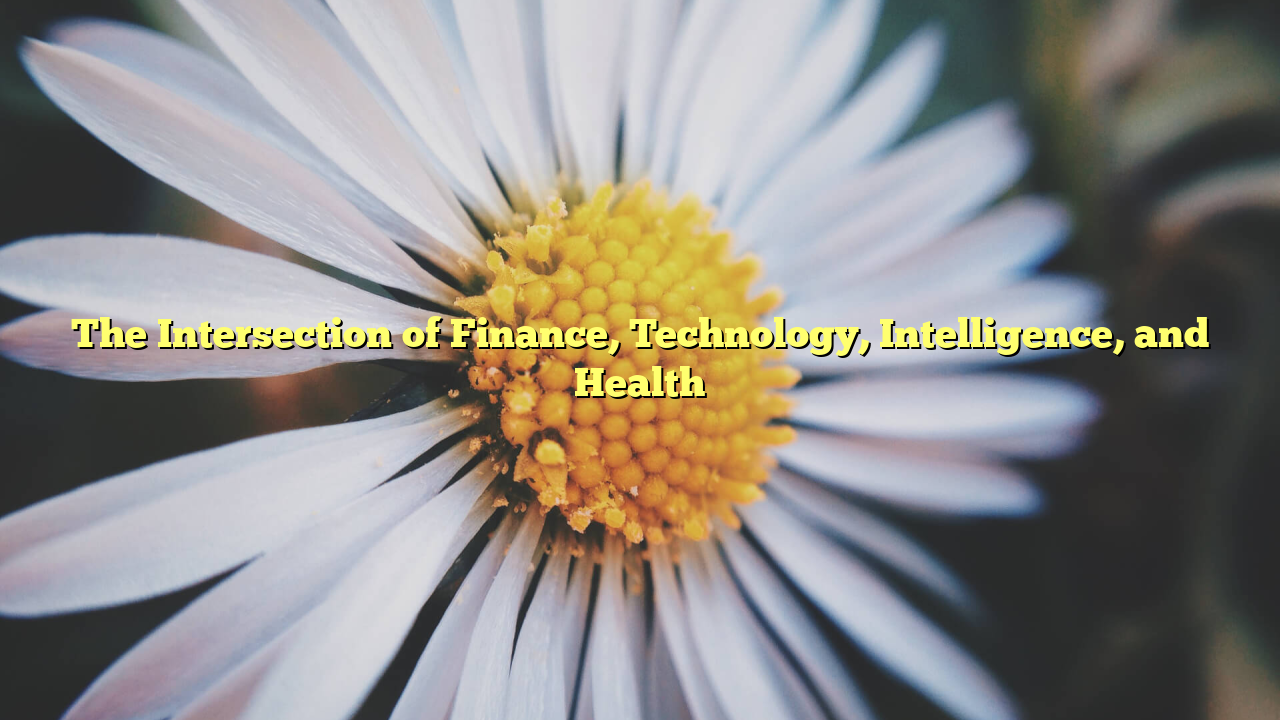Finance, innovation, intelligence, and well-being are key pillars of modern society. The continuous developments in these areas bring significant change, creating new possibilities and challenges in shaping our future. Today, we explore the impact these fields have on our daily lives and how they shape the world around us.
The Role of Technology in Shaping Financial Markets
Finance plays a crucial role in ensuring economic stability and fostering growth, but the landscape is continuously changing with the advent of technology. The emergence of digital currencies, blockchain technology, and artificial intelligence (AI) in financial analysis is changing how transactions, investments, and even budgeting are handled. The rise of digital assets such as Bitcoin and Ethereum have introduced new ways to store and transfer value.
Moreover, blockchain, which underpins these currencies, offers a decentralized system for transactions, increasing transparency and security. As financial institutions adopt these technologies, they gain access to greater effectiveness, transparency, and security, making the entire system more resilient. Financial technology startups are also gaining momentum by developing innovative solutions that make financial services more accessible to people worldwide, from mobile banking to peer-to-peer lending.
Artificial Intelligence has revolutionized finance by enabling faster, more accurate analysis of market data, improving decision-making processes, and reducing risks.
How AI is Revolutionizing Intelligence in Every Field
Artificial Intelligence (AI) is not only transforming the world of finance and technology, but it is also altering our understanding of cognition. As AI systems become more sophisticated, they replicate human cognitive functions such as learning, problem-solving, and pattern recognition. These advancements are opening new frontiers for how we approach problems in diverse areas, from healthcare to financial modeling.
AI’s impact extends far beyond machine learning algorithms. AI has become a powerful tool in healthcare, where it analyzes patient data, medical imaging, and research findings to offer more accurate diagnoses and personalized treatment plans. Additionally, AI enhances cognitive processes in decision-making. By processing data faster and more efficiently than humans, AI systems are increasingly used in industries such as banking to predict trends and optimize performance.
With AI’s widespread adoption comes a need to address ethical concerns, including the protection of privacy, accountability, and the potential for economic disruption.
Technology’s Role in Health: A New Era of Medical Advancements
Technology has profoundly affected the healthcare sector, where advancements such as telemedicine, AI-assisted diagnostics, and robotics are changing how care is delivered. Telemedicine, for example, allows patients to consult doctors remotely, breaking down geographical and logistical barriers to care. This development has been especially crucial in rural areas and for people with mobility issues.
Wearable health devices, such as smartwatches and fitness trackers, are also making it easier for individuals to monitor their health in real-time. These devices track vital signs such as heart rate, sleep patterns, and physical activity, allowing users to make informed decisions about their health. Moreover, with the integration of AI and big data, healthcare providers can offer more personalized and efficient care, ensuring better outcomes for patients.
Robotic-assisted surgeries allow for highly precise procedures, resulting in less trauma to patients, reduced recovery times, and overall better surgical outcomes.
What Lies Ahead for the Integration of Finance, Technology, Intelligence, and Health?
The synergy between finance, technology, intelligence, and health will continue to evolve, creating new opportunities for growth, better quality of life, and more efficient systems worldwide.
In webini33 daftar coming years, the integration of these key fields will bring significant changes that improve both societal structures and individual health and economic outcomes.
In conclusion, the intersection of finance, technology, intelligence, and health will shape the future in profound ways. Whether through the development of digital currencies, advancements in AI and cognitive sciences, or the integration of technology in healthcare, these fields will drive global change in ways we have yet to fully comprehend. The future of these domains will hold limitless possibilities for improving our world and quality of life.
The Intersection of Finance, Technology, Intelligence, and Health



